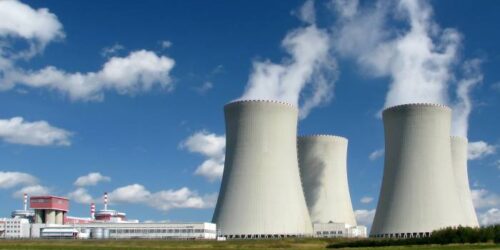Nuclear technology can play a vital role in securing sustainable supplies of clean energy in Pakistan, said Sindh Minister for Mines and Mineral Development and Public Health Engineering Mir Shabbir Ali Bijarani.
He stated these remarks in a webinar on “Sustainable Development through Nuclear and Space Technologies in Pakistan” organised by Center for International Strategic Studies (CISS) here on Thursday. The webinar coincided with the successful connection of 1100 MW KANUPP-2 nuclear power plant to the national grid.
The minister lauded the achievements of Pakistan Atomic Energy Commission (PAEC) and Space and Upper Atmosphere Research Commission (SUPARCO), saying: “The province of Sindh, as well as the rest of Pakistan, is getting benefits of nuclear and space related technological advances.” He assured Sindh government of full support for such future projects.
UN experts welcome cease-fire in Gaza and Israel, call for ICC probe
China Zhongyuan Engineering Corporation Chairman Wang Yong Fu appreciated Pakistan’s decades’ long experience of safely operating nuclear power plants and assured China’s technical support to Pakistan for projects related to nuclear energy.
Wang Yong Fu also identified the prospects of further civil nuclear cooperation between Pakistan and China in the fields of radioactive waste disposal, nuclear medical treatment and radiation facilities.
Chairman PAEC Muhammad Naeem emphasized that peaceful application of nuclear technology in Pakistan has significantly contributed to socio-economic development of the country. Nuclear power is the future of Pakistan for being the cheapest, clean and reliable base-load energy source.
The KANUPP-2 and KANUPP-3 nuclear power plants in Karachi are comparable to state of the art nuclear reactors in terms of safety features.
Chairman SUPARCO, Major General Amer Nadeem underlined that the peaceful uses of space technology provides wide solutions for achieving UN Sustainable Development Goals (SDGs). He highlighted that SUPARCO has played an effective role in mitigating challenges by timely mapping the data in various fields including disaster management, food and health security, and biodiversity.
Former Chairman PAEC Dr Ansar Parvez argued that peaceful application of nuclear technology in Pakistan is helping to pursue UN SDGs. The benefits of nuclear technology expand to different fields including medicine, health, agriculture, industry, water resource management and electricity production. Other speakers reiterated that to keep pace with technological advancements across the globe, effective utilization of nuclear and space technologies is crucial for national development.
In his concluding remarks, Executive Director CISS, Ambassador Ali Sarwar Naqvi emphasized the increasing role of peaceful use of nuclear and space capabilities in pursuit of socio-economic development.





